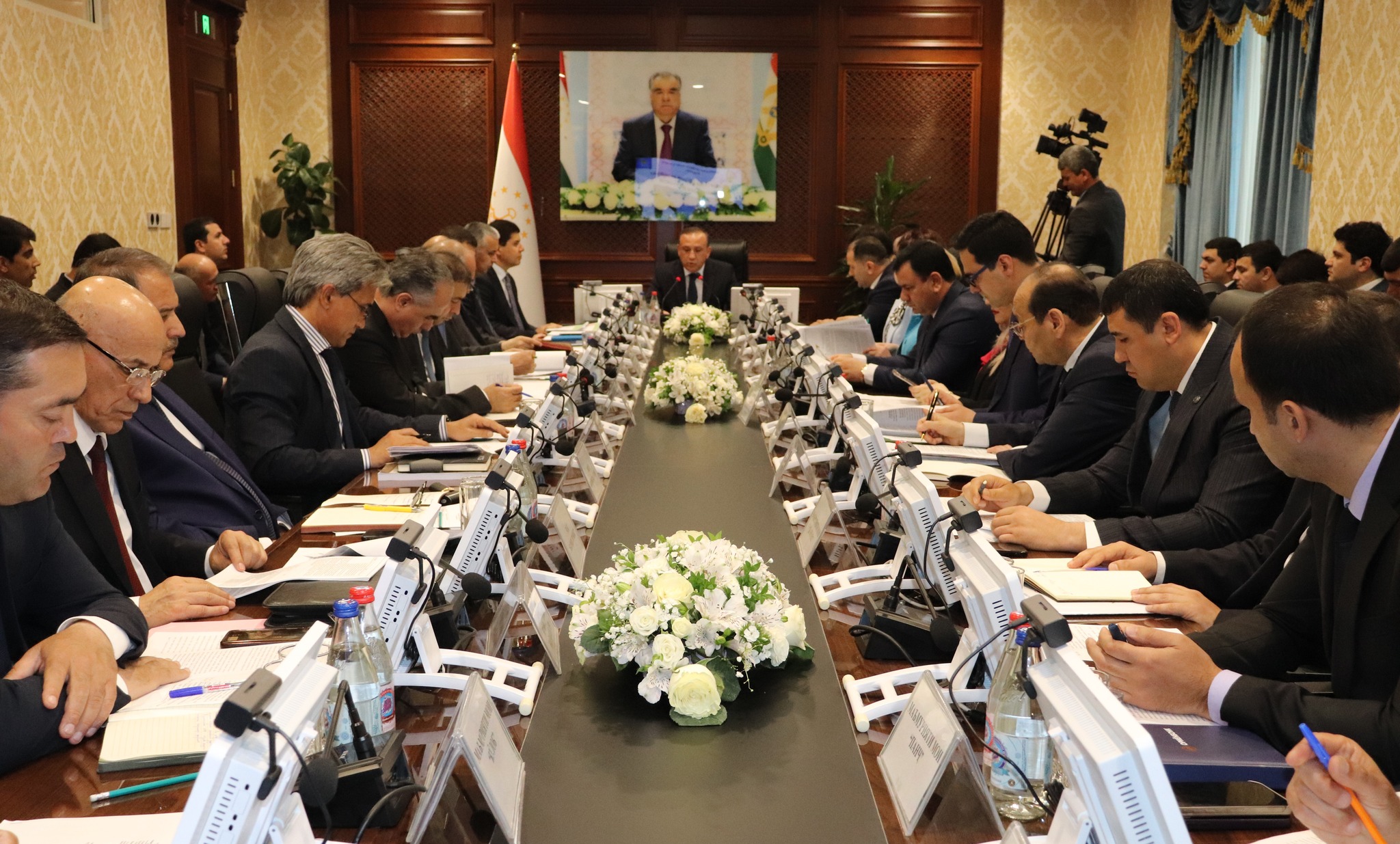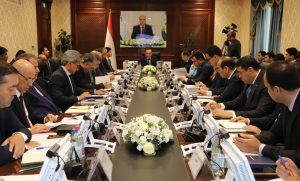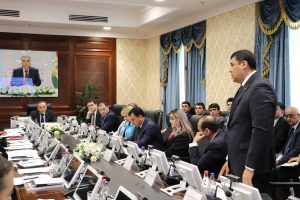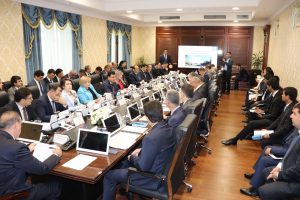
The 13th Meeting of the Supervisory Board of the Free Economic Zones was held at the Ministry of Economic Development and Trade
On April 18, 2025, at the Ministry of Economic Development and Trade, under the chairmanship of the First Deputy Prime Minister of the Republic of Tajikistan, Chairman of the Supervisory Board of the Free Economic Zones, Honorable Khokim Khikmatullo Khaliqzoda, the next meeting of the Board was held with the participation of representatives from relevant ministries and departments.
It was reported that as of January 1, 2025, 107 domestic and foreign companies are registered in the free economic zones, of which 41 entities are in the “Sughd” free economic zone, 36 entities in the “Dangara” free economic zone, 9 entities in the “Kulyab” free economic zone, 17 entities in the “Panj” free economic zone, and 4 entities in the “Ishkoshim” free economic zone. In 2024 alone, 24 entities were registered in the country’s free economic zones, including 7 entities in the “Sughd” FEZ, 9 entities in the “Dangara” FEZ, 6 entities in the “Panj” FEZ, and 2 entities in the “Kulyab” FEZ. Additionally, 6 enterprises from the total number of registered companies were put into operation, creating 157 jobs.
The attraction of domestic and foreign investments in 2024 to the FEZ amounted to 114 million somoni, which is an 11% increase compared to the same period in 2023.
Since the start of operations in the free economic zones, 1625 jobs have been created, and the total investment volume has reached 2499 million somoni.
Currently, entities in the free economic zones are involved in the production of metal constructions, aluminum and plastic profiles for windows and doors, pipes and plastic containers, electrical cables, construction paints, metal-plastic products, electric scooters, wooden doors and windows, decorative construction products, furniture, and cleaning products. The volume of industrial product production in 2024 amounted to 523 million somoni (76 million somoni more than in 2023). The total volume of industrial product production since the beginning of the free economic zones’ activities has reached 2988 million somoni.
Since the start of activities, entities in the free economic zones have paid 386 million somoni in customs duties and taxes to the state budget, which is almost 3.5 times more than the funds allocated from the state budget for the development of infrastructure and the maintenance of the free economic zones.
It was also noted that during his official visit to the Sughd region on March 30, 2025, the Founder of Peace and National Unity – Leader of the Nation, President of the Republic of Tajikistan, Honorable Emomali Rahmon, officially opened the enterprises LLC “Tojpanel” and the second stage of production of LLC KM TT “Afrang Plastik” in the “Sughd” free economic zone.
According to the investment project, the activity of LLC “Tojpanel” is focused on the production of building materials (panels), with a total investment of more than 5.5 million somoni, and its production capacity is 30,000 m2 of panels per year.
LLC KM TT “Afrang Plastik,” according to the investment project, is engaged in the production of plastic profiles, with a total investment of 13 million somoni. Its production capacity is 4000 tons of plastic profiles per year, and when fully operational, more than 100 local residents will be provided with permanent jobs.
At the meeting, the report of the responsible secretary of the Supervisory Board on the issues of the free economic zones was heard, with regard to the implementation of decisions of previous meetings of the Supervisory Board, as well as reports from the heads of the administrations of the “Sughd,” “Dangara,” “Kulyab,” “Panj,” and “Ishkoshim” free economic zones regarding the activities of the zones in 2024.
The Minister of Economic Development and Trade, Deputy Chairman of the Board, Zokizoda Zokhi Amin, participated in the discussions and proposed suggestions for further development of the free economic zones.
At the conclusion of the meeting, the Chairman of the Supervisory Board gave concrete instructions to relevant ministries and departments, as well as to the heads of the administrations of the free economic zones, to address existing shortcomings, strengthen the activities of the free economic zones, establish industrial enterprises, attract more investments, increase production, and boost exports.




